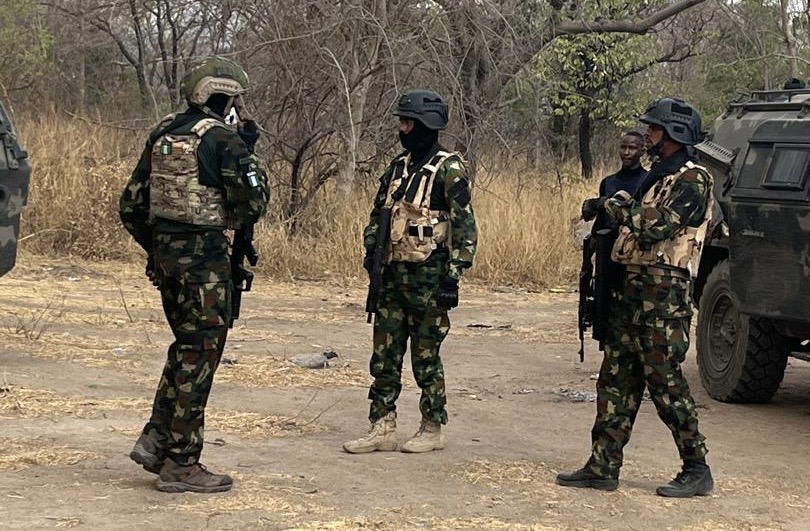Troops of the Nigerian Army’s Operation Hadin Kai achieved a significant victory in the ongoing battle against terrorism with the reported killing of Abu Fatima, a high-ranking commander of the Islamic State West Africa Province (ISWAP) and one of Nigeria’s most wanted terrorists. The operation that led to Abu Fatima’s demise took place in Aleru village, Kukawa, where he was neutralized alongside two of his key lieutenants.
Abu Fatima, who had a staggering ¦ 100 million bounty on his head, was a formidable figure within ISWAP, known for his strategic prowess and ruthless tactics. His elimination marks a crucial blow to the terrorist organization and a substantial win for the Nigerian security forces.
“The death of Abu Fatima is a significant milestone in the fight against terrorism in Nigeria. It demonstrates the commitment and capability of our troops to dismantle the leadership structure of these extremist groups,”
remarked a military spokesperson, highlighting the importance of targeting key figures like Abu Fatima to weaken terrorist networks.
The demise of Abu Fatima is not only a tactical victory but also a symbolic triumph in the broader fight against terrorism in the region. His elimination sends a clear message that no terrorist, regardless of their rank or influence, is beyond the reach of justice. It instills a sense of fear and uncertainty within the terrorist ranks, disrupting their operations and diminishing their morale.
“Taking out high-ranking commanders like Abu Fatima disrupts the chain of command, causing confusion and disarray among the remaining members. It creates an opportunity for security forces to gather intelligence and launch further operations to dismantle the terrorist network,”
explained a counterterrorism expert, shedding light on the strategic implications of such targeted strikes.
The impact of Abu Fatima’s elimination extends beyond just a single operation; it reverberates across the landscape of counterterrorism efforts in the region. It underscores the effectiveness of intelligence-driven operations and the importance of international cooperation in combating transnational terrorist threats.
As the news of Abu Fatima’s demise spreads, it serves as a reminder of the relentless dedication of security forces in safeguarding the nation’s stability and protecting its citizens from the scourge of terrorism. It also underscores the resilience and bravery of the troops who put their lives on the line daily to confront these violent extremist groups.
In conclusion, the elimination of Abu Fatima represents a significant milestone in the ongoing battle against terrorism in Nigeria. It serves as a beacon of hope for a safer, more secure future, where the forces of extremism are met with unwavering resolve and decisive action. The legacy of Abu Fatima, once a feared terrorist leader, now stands as a testament to the unwavering commitment of security forces and the resilience of a nation united against terror.

